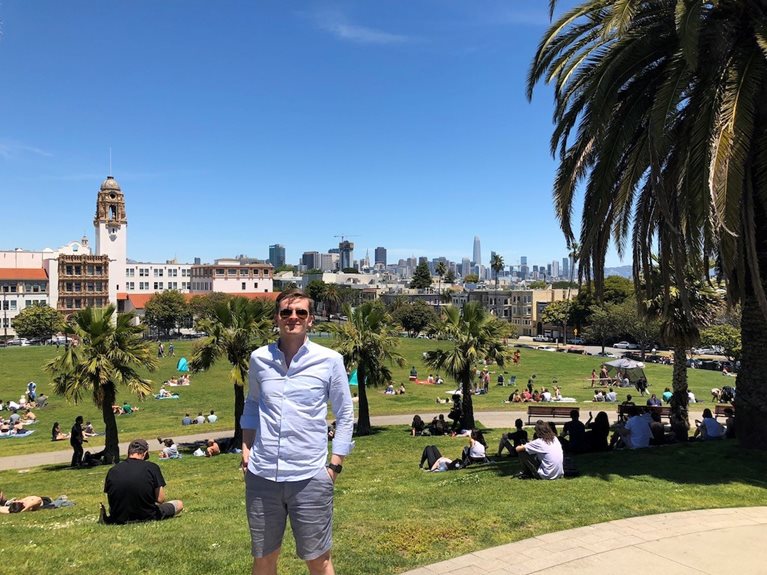
I was not planning to join a consultancy when I started at university. In fact, to keep my options open, I simultaneously studied quantitative economics and law, which was the result of a rather spontaneous decision a year earlier not to become a medical doctor.
Things changed the summer after my second year, when I applied for an internship at a large bank. I was fortunate to get assigned to a team that wanted me to help them optimize their work. This was the humble beginning of my coding adventure. I picked up VBA from scratch, developed tools to improve team management, and automated manual processes. Looking back, this pivotal moment in my career pushed me toward technology.
Excited by my first coding experience (which I later found out was called “shadow IT” work), I studied proper programming languages as a hobby. This hobby turned into a bachelor’s thesis, another internship, and my master’s degree.
Shaping my own path
After graduation, I received an offer to join McKinsey as a data science intern. However, I was torn between accepting a quantitative job and a strictly business-focused position. At this point, I was well-aware of the management consulting industry and I had started doing mock case interviews. I decided it was worth finding out if I enjoyed working as a data scientist.
From the very beginning, McKinsey let me shape my own path. During projects we would divide workstreams based on our skills and interests, and outside client work I was free to focus on whatever initiatives I found important and participate in trainings I deemed useful.
McKinsey technologists have access to about 100 hours per year of technical and leadership training, both inside and outside the firm. One learning I particularly liked covered how to apply recent developments, like computer vision, to business.

Exploring through flexibility
This flexibility culminated recently when I did a rotation as a consultant on a non-digital project to temporarily immerse myself in the career path I did not follow. Through this experience I discovered unexpected similarities between tech and business work, like that technological debt can exist not only in codebase but also in Excel and PowerPoint. I learned that creating quality models in Excel can have parallels to doing models in R or Python.
I also saw differences in the work between data scientists and consultants, specifically a different way of problem solving. Projects are often shorter-term for consultants than data scientists, and consultants can sometimes find solutions in just a day, whereas data scientists need longer.
Now, I am more confident choosing a data-driven path was the correct decision. My work experience is similar to a that of traditional consultant, but coding isn’t just a hobby but an important part of my job.
Overall, I’m not sure exactly what I want to do for the rest of my life, so I really enjoy that my current career is so flexible and leaves many doors open to try new things and new paths.
About Krzysztof
Krzysztof is a data scientist in Warsaw, Poland. He studied decision theory and analysis, economics, and quantitative methods at the Warsaw School of Economics and earned his master’s in the statistics department at the London School of Economics. Krzysztof is a Star Wars aficionado and collects Lego sets.
For more information on McKinsey's data science career paths, visit mckinsey.com/TechCareers